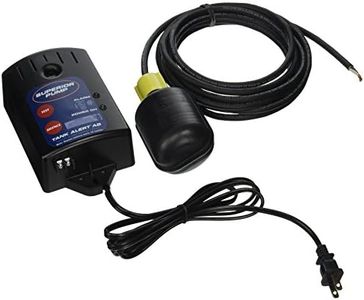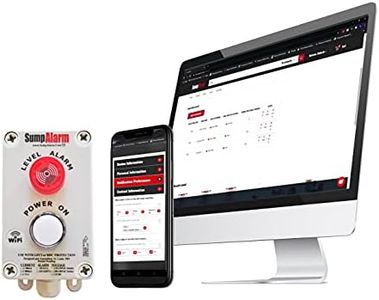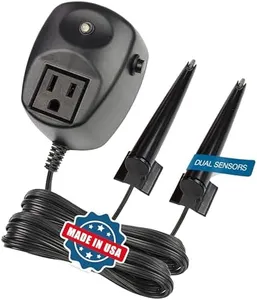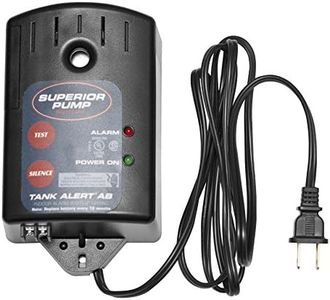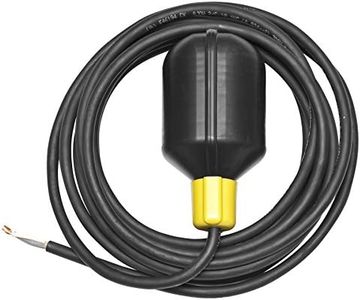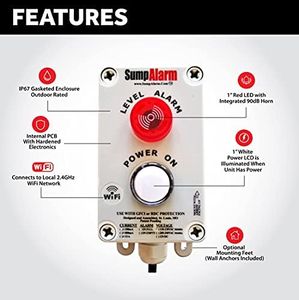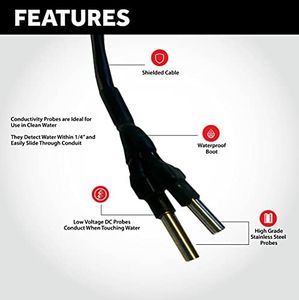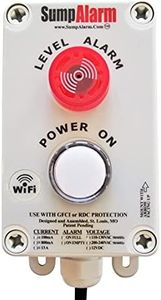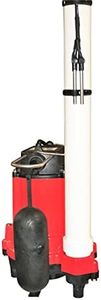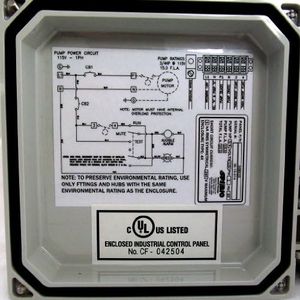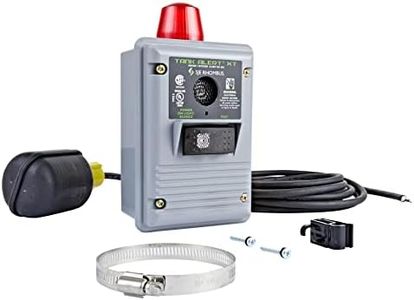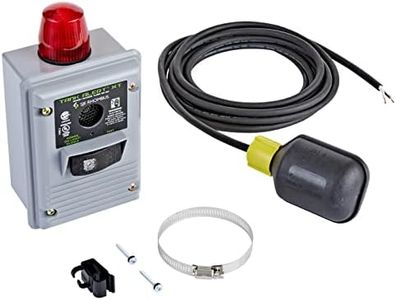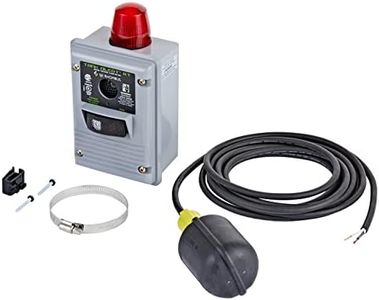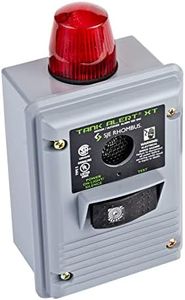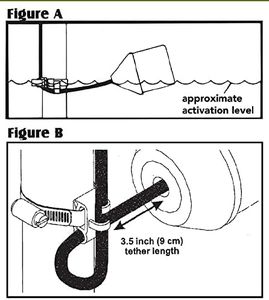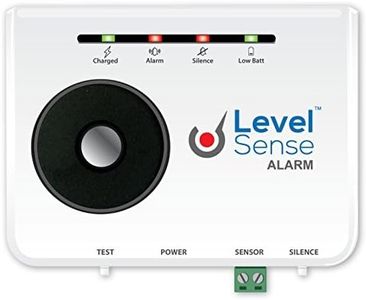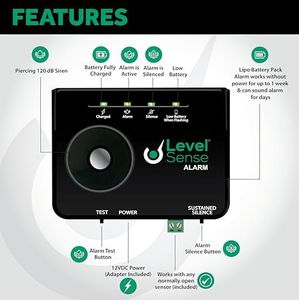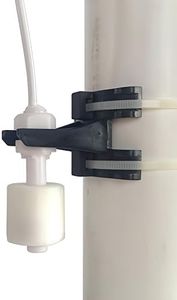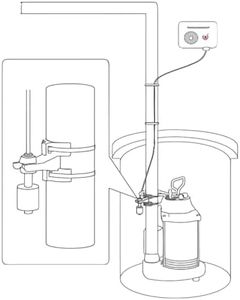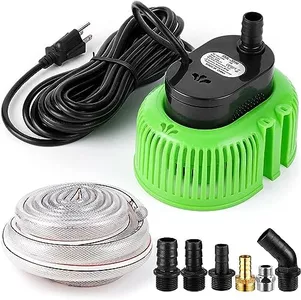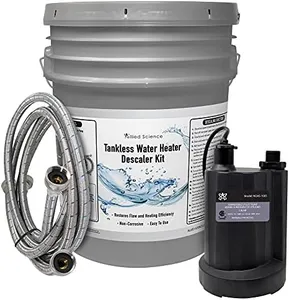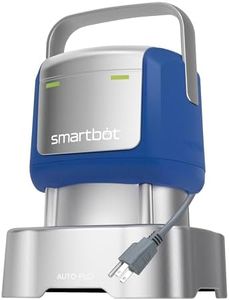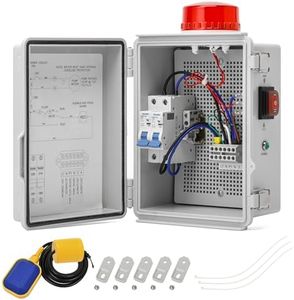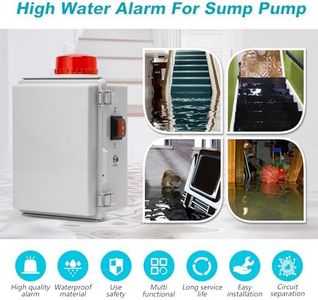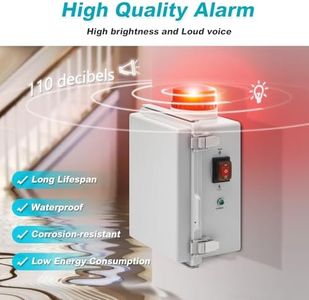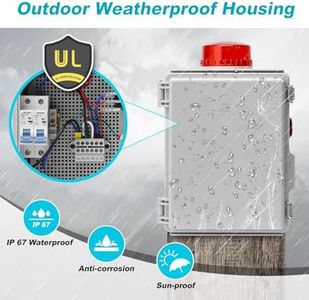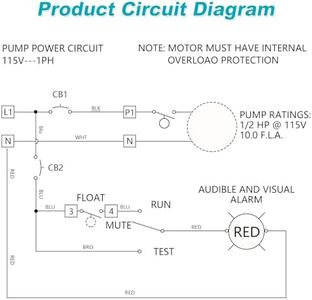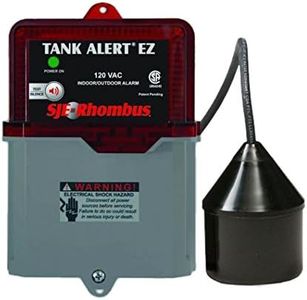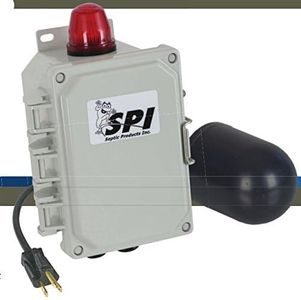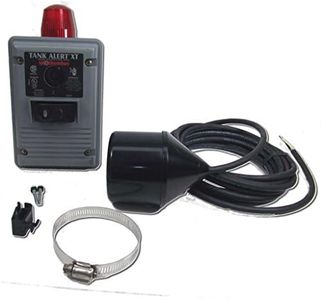10 Best High Water Alarm For Septic 2025 in the United States
Winner
Superior Pump 92060 Sump Alarm System with 15-Foot Tethered Float Switch , Black
The Superior Pump 92060 Sump Alarm System is a reliable option for monitoring liquid levels in sump and sewage basins, holding tanks, and other water applications. One of its key strengths is its non-corrosive NEMA enclosure, which ensures durability and is suitable for indoor use.
Most important from
480 reviews
Wireless (Wifi) In/Outdoor Sump Pump/High Water Alarm - Contacts you by voice e-mail and text before you have a problem.
The Wireless (WiFi) In/Outdoor Sump Pump/High Water Alarm by Sump Alarm is a versatile and innovative solution for monitoring high water levels. Designed to be used in various settings like lift stations, grinder pumps, and pool sumps, this device offers several strengths. One of its main advantages is its ability to notify you via voice, email, and text when water levels become dangerous, allowing you to act quickly and potentially minimize property damage.
Most important from
64 reviews
SPI/BIO Pump Control Panel with High Water Alarm (Model 50B010 WHAP)
The SPI/BIO Pump Control Panel with High Water Alarm (Model 50B010 WHAP) is a solid choice for monitoring and controlling septic systems. This unit employs a level sensor for accurate water level detection, which is crucial in preventing overflows. The control panel is wall-mounted and powered through a corded electric source, making it reliable for continuous operation without the need for battery replacements.
Most important from
37 reviews
Top 10 Best High Water Alarm For Septic 2025 in the United States
Winner
10.0 score
Superior Pump 92060 Sump Alarm System with 15-Foot Tethered Float Switch , Black
Superior Pump 92060 Sump Alarm System with 15-Foot Tethered Float Switch , Black
Chosen by 1186 this week
Wireless (Wifi) In/Outdoor Sump Pump/High Water Alarm - Contacts you by voice e-mail and text before you have a problem.
Wireless (Wifi) In/Outdoor Sump Pump/High Water Alarm - Contacts you by voice e-mail and text before you have a problem.
SPI/BIO Pump Control Panel with High Water Alarm (Model 50B010 WHAP)
SPI/BIO Pump Control Panel with High Water Alarm (Model 50B010 WHAP)
Little Giant 303HWXT 115 Volt Indoor/Outdoor High Water Alarm, Grey, 513273
Little Giant 303HWXT 115 Volt Indoor/Outdoor High Water Alarm, Grey, 513273
Septic Pump Alarm, Zuomeng High Water Alarm for Sump Pump with Bright Flashing Light, 110 dB Alarm, External Submersible Pump Connection, IP67 Casing
Septic Pump Alarm, Zuomeng High Water Alarm for Sump Pump with Bright Flashing Light, 110 dB Alarm, External Submersible Pump Connection, IP67 Casing
SJE Rhombus 1036593 Tank Alert EZ- TaEZ-01Htb, 120 VAC with 15' Sensor Float High Level Terminal Block
SJE Rhombus 1036593 Tank Alert EZ- TaEZ-01Htb, 120 VAC with 15' Sensor Float High Level Terminal Block
SPI Observer 500 - Indoor/Outdoor High Water Alarm - (10A500 / SMD-5H)
SPI Observer 500 - Indoor/Outdoor High Water Alarm - (10A500 / SMD-5H)
8.8 score
SJE-Rhombus Tank Alert XT - Indoor/Outdoor Tank Alarm with Auto Reset
SJE-Rhombus Tank Alert XT - Indoor/Outdoor Tank Alarm with Auto Reset
Our technology thoroughly searches through the online shopping world, reviewing hundreds of sites. We then process and analyze this information, updating in real-time to bring you the latest top-rated products. This way, you always get the best and most current options available.

